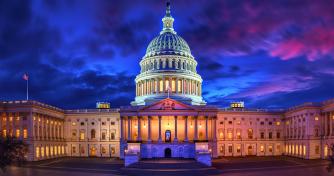US government appoints Sam Altman, other tech execs to newly established AI safety board
The US Department of Homeland Security (DHS) established an AI Safety and Security Board and named 22 members, comprising tech firm executives and other experts in the field, according to an April 26 press release.
The members include OpenAI CEO Sam Altman, Anthropic CEO Dario Amodei, and the heads of major tech companies like NVIDIA CEO Jensen Huang, Microsoft CEO Satya Nadella, IBM CEO Arvind Krishna, Alphabet and Google CEO Sundar Pichai.
The board also comprises Maryland Governor Wes Moore, Seattle Mayor Bruce Harrell and other experts within and without the AI industry — including critical infrastructure operators, public officials, civil rights leaders, and academics.
Protecting critical infrastructure
The board’s inaugural meeting is scheduled for May. Its primary responsibility will be to advise the DHS on the safe and responsible deployment of AI while addressing any related threats.
The initiative focuses on AI in relation to 16 critical infrastructure sectors, including the defense, energy, agriculture, transportation, and internet technology sectors.
The effort builds on the DHS’s 2024 Homeland Threat Assessment, which found that AI could enable advanced cyber attacks against US infrastructure. It also builds on the department’s Artificial Intelligence Roadmap, which details its plans to use AI in homeland security missions in a way that protects individuals’ privacy, rights, and civil liberties.
The establishment of the AI safety board also follows the Biden administration’s October 2023 executive order on AI safety. That order directed Mayorkas to establish the board while also setting other requirements for the DHS and the broader US government.
US federal agencies are currently in the process of appointing chief AI officers and establishing AI governance boards.
The DHS is also in the process of recruiting AI experts in a “hiring sprint.” The initiative will speed the deployment of AI and machine learning technologies within the DHS and help the department address criminal activity and homeland security threats.


















































































